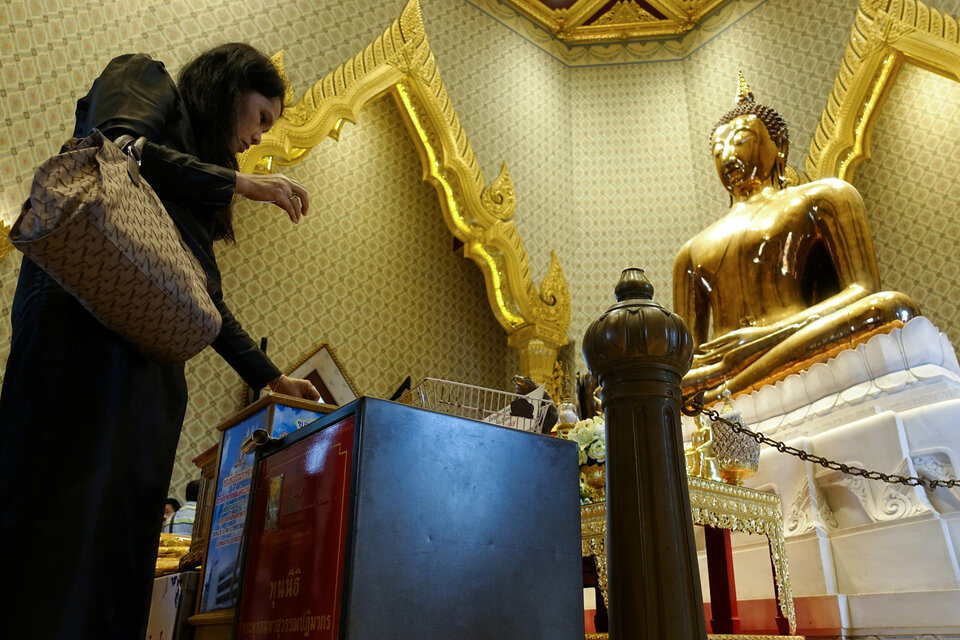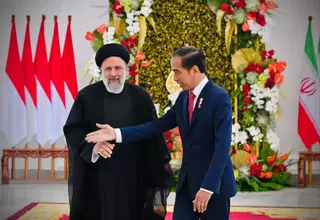Thailand's Buddhist Monks Order Reforms Ahead of Royal Transition

Bangkok. Under growing pressure from Thailand's military government, and their own religious bodies, Buddhist monks have launched a fresh round of reforms in recent weeks to clean up temples and overhaul a religion stalked by scandal.
Buddhism, Thailand's dominant religion, is followed by more than 90 percent of the population.
But its image has suffered over sex scandals involving monks and allegations of money laundering by a former abbot of Thailand's biggest temple. The scandals have prompted calls for tighter checks on the finances of thousands of temples across the country that are among Thailand's popular tourist attractions.
Since September, senior monks have issued orders to enforce stronger discipline for Thailand's more than 300,000 monks and some 40,000 temples.
The orders come at a sensitive time as Thailand prepares to cremate the late King Bhumibol Adulyadej next week and the formal coronation of his only son, King Maha Vajiralongkorn, likely taking place at the end of the year.
Commercializing Religion
The written instructions, seen by Reuters, tell monks to stop asking for donations and temples to stop selling holy objects inside temple grounds. The instructions appear to be aimed at making temple finances more transparent and to counter criticism about the commercialization of religion in the Southeast Asian nation.
Other orders instruct senior monks to tightly control "inappropriate use of social media" by monks to prevent "criticism from the public."
The orders were endorsed by the Sangha Supreme Council, the body that governs Buddhist monks in Thailand and performs a similar role to the Roman Catholic church's College of Cardinals.
"These rules already existed for monks but their implementation may have been lax," Phra Phrom Moli, a member of the Sangha Supreme Council told Reuters.
Many Thais believe generous donations to temples can bring good karma — the principle that good deeds will lead to a good future — something temples and monks have exploited, groups lobbying for reform say.
Phra Phrom Moli welcomed the new orders.
"We must examine ourselves, listen to the people and see what is and is not appropriate for the sake of the public's faith in the religion," he said.
Investigating Temples
One order given in September by a group of temples in Thailand's northeast region asked monks to police each other and report any behavior that might go against Buddhist teachings.
"Please take care of any monks who are not practicing discipline," the order read.
The junta has been trying to reform Thai Buddhism since it came to power in a 2014 coup.
Last month, it reinstated a former senior police official, Pongporn Pramsaneh, as head of the National Buddhism Office, who soon afterward asked police to investigate temples where state funds were allegedly misappropriated. Reuters was unable to reach Pongporn for comment.
Police say they are focusing on 35 temples and 29 individuals, including five abbots and a former Buddhism chief, who were allegedly involved in misappropriating funds. All five abbots have been formally charged for abusing state authority and colluding to do wrong, among other charges.
The government allocated 5.3 billion baht ($161 million) to support Buddhism last year, 4.7 billion baht of which was earmarked for temples and monks across the country.
Power Tussle
Some analysts see the latest reform push as part of a power tussle between monks and the state ahead of the royal transition.
"What the monkhood is doing is tightening control for the sake of their own legitimacy," Buddhism scholar Somrit Luechai told Reuters. Thai Buddhism also needs to make itself relevant again, he added.
"By failing to adapt and find new ways to make people understand the teachings of the Buddha... they are gradually losing relevance for new generations of Thais," Somrit said.
Sulak Sivaraksa, a pre-eminent Buddhist scholar, agrees.
For centuries, Buddhist temples were centers of education in Thailand but Sulak said theoretical teachings were no longer enough.
"The education of monks needed modernization," Sulak told Reuters. "The existing system is creating monks that do not fully understand the real world."
Reuters
Tags: Keywords:POPULAR READS
President Jokowi Urges Global Restraint as Tensions Rise in the Middle East
President Joko "Jokowi" Widodo emphasized the importance of diplomatic efforts to prevent the escalation of conflict in the Middle EastKPK Identifies Sidoarjo Regent as Suspect in Corruption Probe
KPK has identified Ahmad Muhdlor Ali as a suspect in a corruption case involving the Sidoarjo Regional Tax Service AgencyEconomic Concerns Overshadow Security Worries for Indonesians in Iran
Indonesian citizens currently in Iran are more concerned about rising inflation than the security situation in the country.'Siksa Kubur' Review: Indonesian Horror with Solid First Act
The beginning part of "Siksa Kubur" is incredibly solid across many fields, including the visual storytelling.IDX Slides 2 Percent as Geopolitical Conflict Rattles Market Confidence
The IDX attributed the subdued performance of the index at the start of the week to the escalating geopolitical tensions in the Middle EastPopular Tag
Most Popular






















